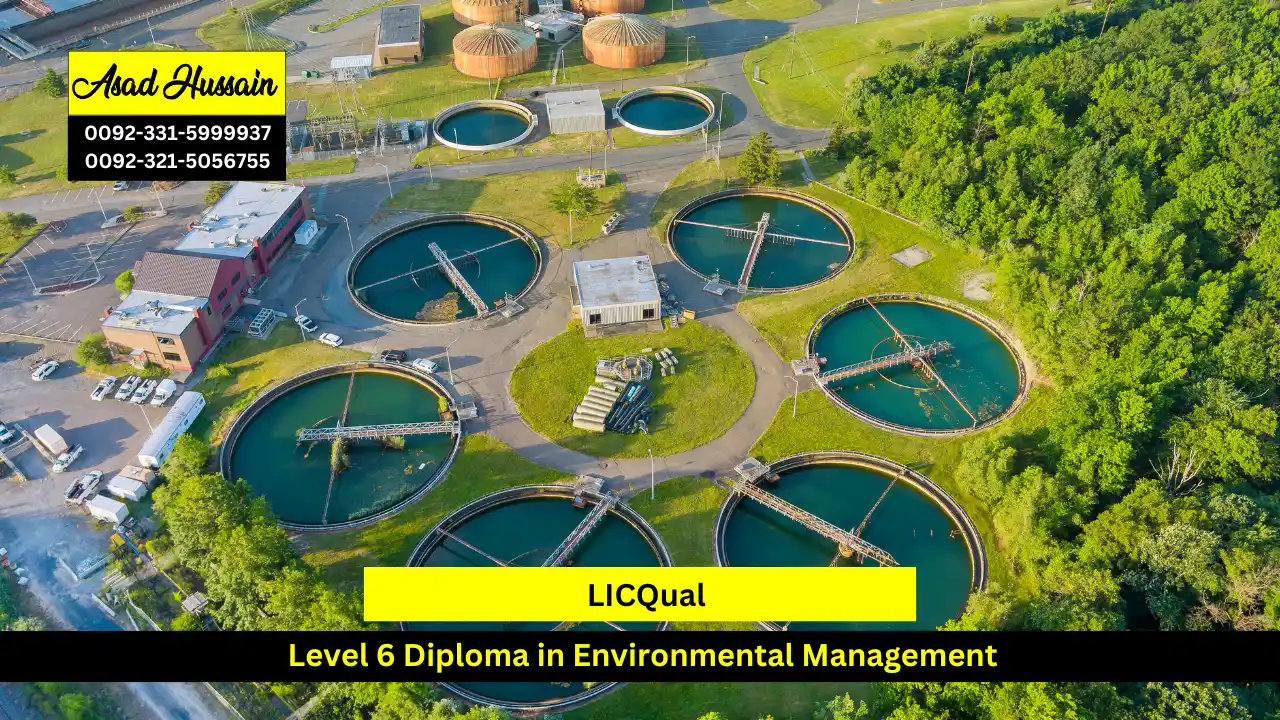In today’s rapidly changing world, environmental issues are at the forefront of global concerns. Businesses, governments, and individuals alike are increasingly recognizing the importance of effective environmental management. This is where qualifications like the Level 6 Diploma in Environmental Management come into play, offering comprehensive education and skills crucial for tackling environmental challenges.
The Level 6 Diploma in Environmental Management is a specialized qualification designed to equip individuals with the knowledge and skills needed to manage environmental responsibilities within organizations. It focuses on practical applications of environmental management principles, preparing professionals to navigate complex environmental regulations and sustainability practices.
The Level 6 Diploma in Environmental Management is not just a qualification but a pathway to making a significant impact in environmental stewardship. Whether you’re looking to enter the field of environmental management or advance your existing career, this diploma equips you with the necessary tools to navigate and lead in a world increasingly focused on sustainability and environmental responsibility.
Program Highlights
Mandatory Units
- Unit 1. Environmental Sustainability and Principles.
- Unit 2. Global Environmental Issues.
- Unit 3. Environmental Policy.
- Unit 4. Environmental Policy issues.
- Unit 5. Environmental Law.
- Unit 6. The key environmental Units of International legislation and compliance measures.
- Unit 7. The Environmental Management system and sustainability development in a business context.
- Unit 9. Environmental Management and assessment tools
- Unit 10. Analysis, problems and opportunities to deliver sustainability solution
- Unit 11. The development and implementation of programmes to deliver environmental performances, improvement
Academic Qualifications
- Educational Background: Candidates are usually required to have a relevant Level 5 qualification in a related field. This may include:
- A Level 5 Diploma in Environmental Management or a closely related discipline.
- A Bachelor’s degree (or equivalent) in Environmental Science, Environmental Engineering, Sustainability Studies, or a related field.
- Work Experience: Some institutions may require applicants to have relevant work experience in environmental management or a related field. This can demonstrate practical understanding and application of environmental principles.
English Language Proficiency
Since the diploma program is likely conducted in English, applicants whose first language is not English may be required to demonstrate proficiency in English through one of the following:
- IELTS: Achieving a minimum overall band score of 6.0, with no individual component score below 5.5.
- TOEFL: Attaining a minimum score of 80 on the Internet-based test (iBT), with a minimum of 20 in each section.
- Other English Language Tests: Institutions may accept other recognized English language qualifications, depending on their policies.
Additional Requirements
- References: Some institutions may require applicants to provide references or recommendation letters that attest to their academic ability and suitability for the program.
- Personal Statement: A statement of purpose or personal statement may be required, outlining the applicant’s motivation for studying environmental management and their career goals.
- Interview: In some cases, applicants may be invited for an interview to assess their suitability for the program and their understanding of environmental issues.
Environmental Sustainability and Principles
- Understand the concept of environmental sustainability and its significance in contemporary environmental management.
- Analyze the principles of sustainability and apply them to real-world environmental challenges.
- Evaluate the implications of unsustainable practices on ecosystems and human societies.
Global Environmental Issues
- Identify major global environmental issues such as climate change, biodiversity loss, and resource depletion.
- Analyze the interconnected nature of global environmental challenges and their impacts on regional and local scales.
- Propose strategies for addressing global environmental issues through international cooperation and policy frameworks.
Environmental Policy
- Explain the role of environmental policy in shaping regulatory frameworks and promoting sustainable practices.
- Evaluate the effectiveness of different environmental policy instruments in achieving environmental goals.
- Critically analyze case studies to understand the implementation and outcomes of environmental policies.
Environmental Policy Issues
- Identify key environmental policy issues such as pollution control, waste management, and conservation strategies.
- Analyze the complexities and controversies surrounding environmental policy formulation and implementation.
- Propose solutions to address environmental policy challenges in diverse socio-economic contexts.
Environmental Law
- Explain the principles and sources of environmental law at national and international levels.
- Evaluate the role of legal frameworks in environmental protection and natural resource management.
- Apply legal principles to analyze environmental case studies and regulatory compliance.
The Key Environmental Units of International Legislation and Compliance Measures
- Identify major international environmental agreements and conventions.
- Evaluate compliance measures and reporting requirements under international environmental treaties.
- Analyze the implications of non-compliance and international legal disputes on global environmental governance.
The Environmental Management System and Sustainability Development in a Business Context
- Describe the components and benefits of an Environmental Management System (EMS) within business operations.
- Evaluate the integration of sustainability principles into corporate strategies and decision-making processes.
- Develop recommendations for improving environmental performance and sustainability outcomes in business contexts.
Environmental Management and Assessment Tools
- Utilize environmental management tools such as Environmental Impact Assessment (EIA) and Life Cycle Assessment (LCA).
- Evaluate the effectiveness of assessment tools in identifying environmental risks and opportunities.
- Apply assessment methodologies to propose mitigation strategies and sustainable solutions.
Analysis, Problems, and Opportunities to Deliver Sustainability Solutions
- Analyze complex environmental problems and identify root causes using systems thinking approaches.
- Evaluate opportunities for innovation and collaboration to deliver sustainable solutions.
- Develop strategies and action plans to implement sustainability initiatives and measure their effectiveness.
The Development and Implementation of Programmes to Deliver Environmental Performance Improvement
- Design and implement environmental programs aimed at improving organizational performance.
- Monitor and evaluate environmental performance indicators to track progress and identify areas for improvement.
- Communicate effectively with stakeholders to gain support and commitment for environmental initiatives.
The Level 6 Diploma in Environmental Management is designed for individuals who are passionate about environmental sustainability and eager to make a tangible impact in this vital field. This course is ideal for environmental professionals seeking to advance their careers with specialized knowledge in areas such as environmental policy, law, and management. It is also suitable for recent graduates aiming to specialize further in environmental studies and contribute meaningfully to environmental stewardship. Additionally, career changers looking to transition into environmental management roles, government and NGO personnel involved in environmental policy and regulation, and business leaders aiming to integrate sustainable practices into corporate strategies will find this course highly beneficial. By equipping participants with advanced skills and understanding, this diploma prepares them to tackle complex environmental challenges and drive positive change in their professional spheres and beyond.







